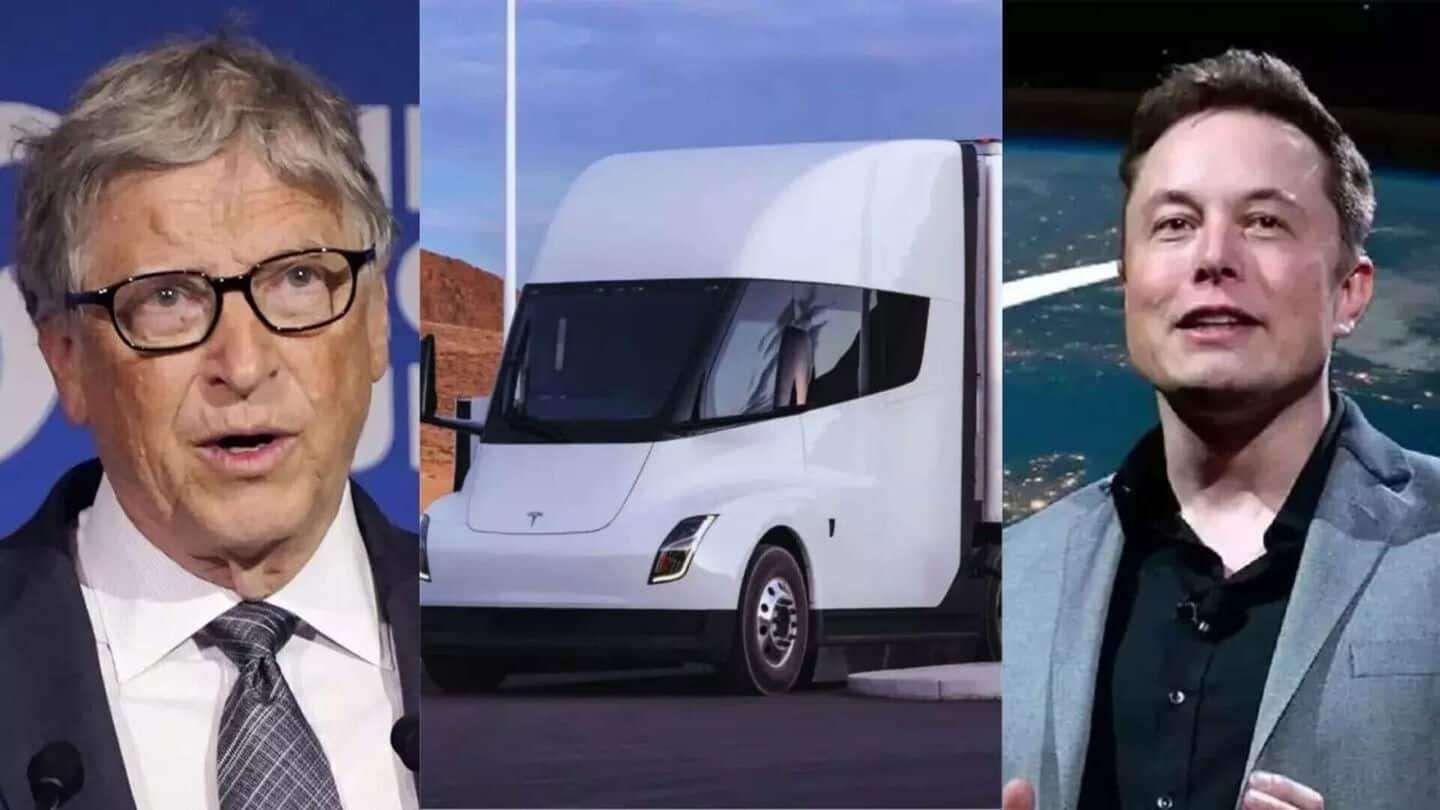
Musk says e-trucks will soon ply on roads, Gates skeptical
What's the story
The future of electric heavy-duty trucks is a hotly debated topic among industry leaders. Microsoft co-founder Bill Gates has questioned the feasibility of fully electric 18-wheelers. However, Elon Musk, CEO of Tesla, is optimistic about their potential. "Tesla Semi is not just feasible, it's the future of trucking," Musk said as he confirmed that his company's all-electric Semi truck will go into volume production next year.
Technical hurdles
Gates highlights technical challenges
Gates has been vocal about the technical hurdles faced by fully electric 18-wheelers. He claims that the high energy density needed to transport heavy loads over long distances with batteries leads to more battery weight, which reduces efficiency and practicality. Gates believes this makes electrification especially tough for heavy freight, cargo ships, and passenger jets.
Production plans
Musk doubles down on Tesla Semi production timeline
Meanwhile, Musk has reiterated that Tesla's all-electric Semi truck will go into production in 2026. The company has set up a dedicated manufacturing facility near Gigafactory Nevada with an anticipated annual output of 50,000 units at full capacity. The Semi promises a range of 805km per charge, top-tier acceleration and torque, as well as a gross vehicle weight comparable to traditional diesel trucks.
Market growth
Tesla's broader strategy
Tesla isn't just focusing on the heavy-duty segment. The Cybertruck, a full-size electric pickup, started production at Gigafactory Texas in late 2023. There are also reports of Tesla considering a smaller e-pickup. However, the company still has to overcome some major hurdles such as building a reliable high-capacity charging infrastructure, and ensuring grid capacity can handle rapid high-power charging for long-haul fleets.
Operational hurdles
Why are electric heavy-duty trucks not mainstream?
Heavy batteries on electric heavy-duty trucks add a lot of weight, lowering payload capacity and fleet profitability. They also limit the range compared to diesel and hydrogen alternatives. The high upfront costs, slower charging times, and limited range affect operational efficiency. Sourcing affordable renewable electricity is also still a hurdle.